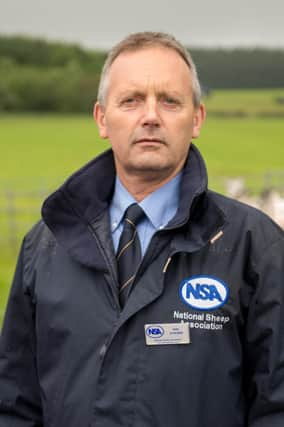Sheep sector the sacrificial lamb in Aussie trade deal


And yesterday the National Sheep Association (NSA) urged the UK government to allow the proper scrutiny which would safeguard the sector.
That would come by ensuring adequate measures were included in the proposed free trade agreement to avoid market disruption and the undermining of the UK’s high standards for animal health and welfare, and the farmed environment.
Advertisement
Hide AdAdvertisement
Hide AdThe NSA said that the current agreement in principle (AIP) with Australia included an immediate tripling of Tariff Rate Quotas (TRQs), which for lamb would see imports increase from 8,000 tonnes annually to 25,000 – with further increases over ten years to 125,000 tonnes.
“At current consumption rates that is equivalent to more than 40 per cent of the UK’s total sheepmeat needs,” said the association. But they pointed out that the New Zealand trade minister had already stated they expected their FTA to be treated similar to that of Australia.
“The New Zealand quota is already currently 110,000 tonnes and this statement is a stark reminder of the dangers of a precedent being set,” said NSA chief executive, Phil Stocker.
He pointed out that this meant that up to 80 per cent of sheep meat consumed in Britain could be imported – “Much of it produced in ways that wouldn’t be allowed by farmers here,” said Stocker.
And he added that with such pressure being applied by the two biggest exporting sheep meat nations, there would inevitably be periodic price wars in the sector.
“NSA warned from day one that the UK sheep sector could end up being the sacrificial lamb for the benefit of other industries in a trade deal and ministers could still step in to ensure this doesn’t happen.
“We should be looking at carcase equivalent volumes rather than the option to fill quota with a limited range of cuts, and we should also consider seasonal limits to avoid clashing with our peak production months.”Stocker said that UK sheep farmers also needed assurances that in case of market disruption, quotas could be halted.
“At a time when farmers are being required to be more profitable, maintaining good and stable prices will be an important part of achieving this.”
Advertisement
Hide AdAdvertisement
Hide AdHe also said that equivalent standards on welfare and the environment should be adopted – and while the UK sheep sector currently scored a B in the international Animal Protection Index, Australia only rated a D.
Stocker said that there was still time to include the necessary safeguards before the final text of any agreement was signed, with the AIP only setting out in principle the jointly agreed terms to be included in the free trade agreement.
“It should not itself be assumed to be the final treaty commitments contained in the FTA, and we now need to take every opportunity to identify and build in safeguards to protect British sheep farming”.
Comments
Want to join the conversation? Please or to comment on this article.